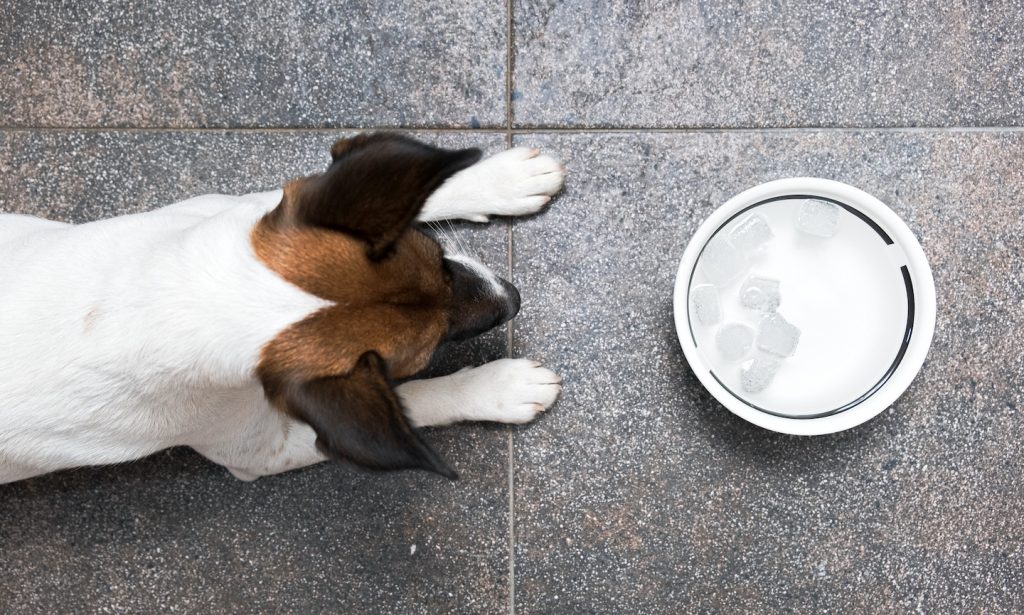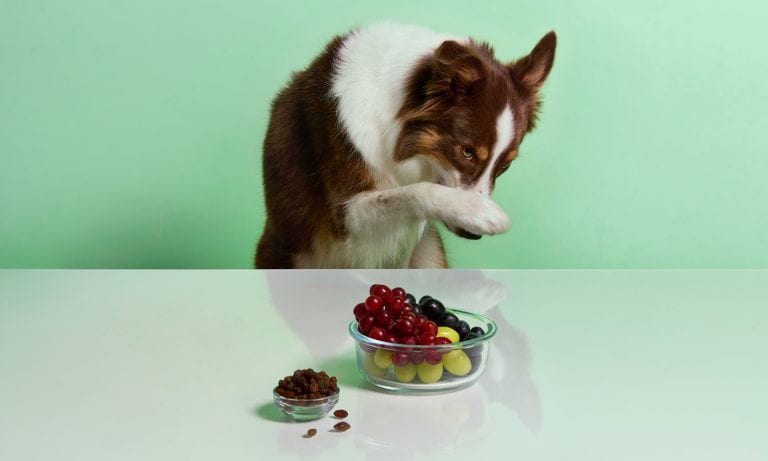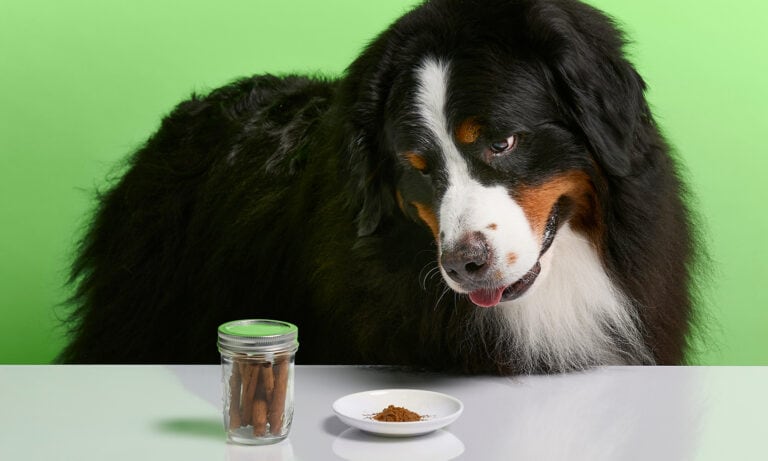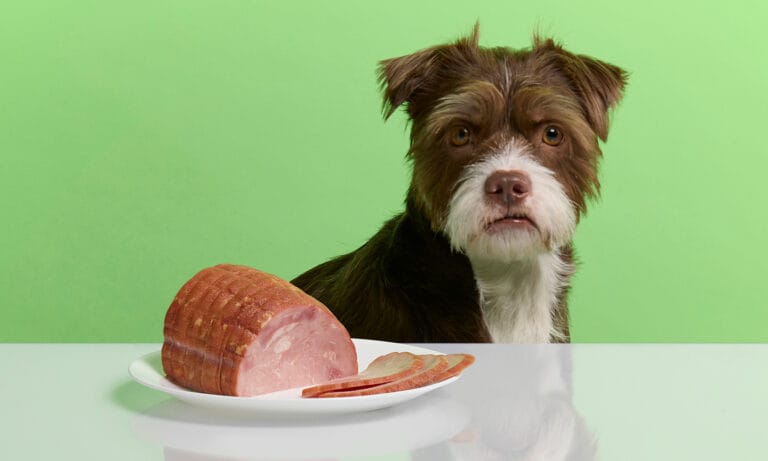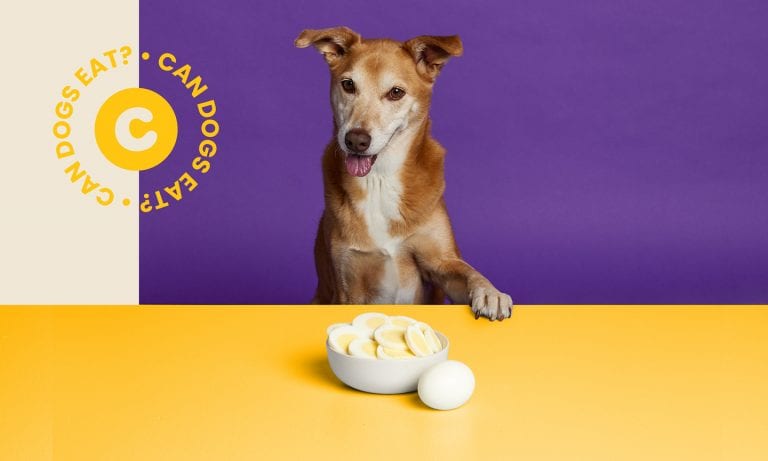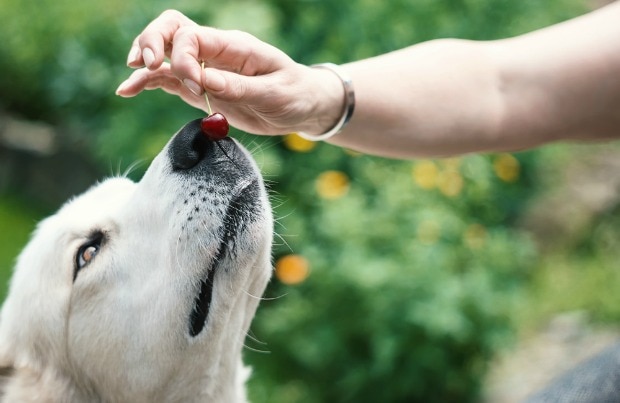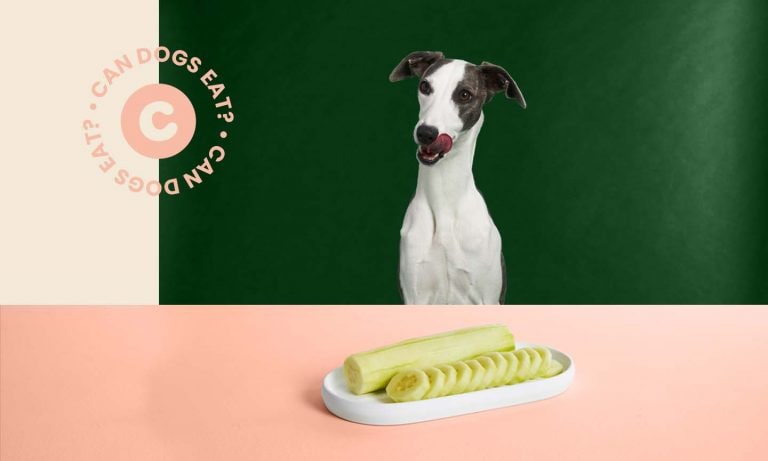As the summer sun cranks up the heat, looking for ways to keep our dogs cool and comfortable becomes a top priority. You might have thought about tossing a few ice cubes into their water bowl or even offering them a cube as a frosty treat. But wait a second—can dogs eat ice? What about ice water?
The short answer is yes. It’s generally safe for dogs to consume these warm weather delights.
Dogs can typically consume ice in moderation without harmful effects. So, if your dog just ate an ice cube or drank ice water, there’s no need to panic! In most cases, your fur baby will be perfectly fine and may even receive benefits.
But! There are a few potential hazards to keep in mind. We spoke to a vet expert to understand the benefits and potential dangers of giving dogs ice and ice water.
What Are the Benefits of Ice and Ice Water for Dogs?
Ice and ice water can offer several benefits to dogs, especially during the hot summer months when the risk of overheating is high. These include:
- Cooling down: Dogs can only sweat through their paw pads, which is inefficient, so they mainly rely on panting to cool down. A little crushed ice or ice water can help bring down a dog’s body temperature on hot days.
- Hydration: For dogs who may not be drinking enough water, especially in hot weather, ice can be a creative way to get them to consume more H20. Learn about the signs and symptoms of dehydration in dogs.
- Entertainment: Many dogs enjoy licking or sucking on ice cubes, seeing them as a fun and engaging toy. This can help keep them occupied and mentally stimulated.
- Weight-friendly: Ice is a great treat option for dogs who need to lose weight. It’s calorie-free but can still feel like a special reward.
What Are the Dangers of Dogs Eating Ice or Drinking Ice Water?
While the above benefits make a strong case for occasionally giving your dog ice or ice water, there are a few potential dangers to consider.
The dangers of dogs eating ice or drinking ice water include the following:
- Tooth breakage: Ice cubes are extremely hard, and chewing on them (especially big pieces) can cause tooth breakage. This risk is higher for puppies, whose teeth are still developing, and for older dogs with dental issues.
- Wear on tooth enamel: Dogs who frequently chew on hard substances, like ice, can cause wear and tear on their tooth enamel. This can lead to dental issues, like sensitivity, tartar accumulation and gum disease. As with humans, a dog’s tooth enamel doesn’t regenerate, meaning once it’s damaged, it can’t be restored.
- Choking hazard: Your dog could choke on an ice cube, especially if they’re a small dog or if they tend to gobble up food quickly. The slippery nature of ice can cause it to slip down the dog’s throat before it’s sufficiently chewed.
How Do I Safely Give My Dog Ice and Ice Water?
If you want to give your dog ice or ice water, here are some suggestions to ensure this is done in the safest manner possible:
- Crush the ice cubes: To minimize the risk of choking and dental damage, avoid giving your dog whole ice cubes. Instead, crush up the cubes into smaller pieces. Ice chips and shaved ice are also good options.
- Introduce slowly: If your dog has never had ice or ice water before, introduce it slowly. Let them lick some ice and see how they react before giving them more.
- Moderation is key: As with any treat, ice should be given in moderation. While it’s a great way to help your dog cool down, too much can lead to an upset stomach or dental damage.
- Observe your dog: Always supervise your dog when they’re eating ice or drinking ice water, especially the first few times. Look out for any signs of discomfort, difficulty swallowing or other unusual behavior.
- Consult your vet: If you’re unsure about whether to give your dog ice or ice water or if you notice any adverse reactions, don’t hesitate to consult your veterinarian. They can provide you with advice that’s tailored to your pet’s specific needs and conditions.
Can I Give My Puppy Ice?
While consuming ice is not life-threatening to puppies, giving it to them is not recommended, especially if they’re teething. Puppies start developing their first set of teeth around 2 weeks old and then begin teething, where they lose their baby teeth to make way for adult ones.
Giving ice cubes to a teething puppy could lead to dental damage, as their teeth are still developing and are more fragile. To help with teething, give your puppy flexible teething toys, like Petstages Cool Teething Stick or Nylabone Puppy Teething Pacifier, instead. You can even put the chew toys in the freezer for 10 to 15 minutes to make them cool.
Even if your puppy isn’t teething, puppies’ teeth are more delicate than adult dogs’, so the risk of damage when consuming ice is higher. To play it safe, it’s best to avoid giving puppies ice. Cold water (sans ice), on the other hand, is A-OK.
FAQs About Dogs and Ice
Q:
Can ice cause bloat in dogs?
A:In 2010, a dog parent wrote a blog claiming that giving her pup ice water led to the dog developing bloat (aka gastric dilatation and volvulus)—a life-threatening condition that occurs when a dog's stomach expands and twists. This story went viral, causing concern about dogs consuming ice water.
Fortunately, there’s no evidence to support this claim. If a dog experiences bloat after drinking ice water, it likely doesn’t have anything to do with the ice or the water’s temperature. Rather, it’s probably due to the dog drinking the water too fast—and swallowing lots of air in the process—which can be a recipe for bloat.
Q:
Can dogs digest ice?
Q:
Can dogs eat ice in their water?
Q:
Can dogs eat ice cream?
A:
Most dogs love ice cream (and who could blame them?), but this human treat is not recommended for canine consumption. While giving your dog a tiny bit of ice cream here and there is typically fine, most dogs are lactose intolerant to some degree, which means they have difficulty digesting lactose—the sugar found in dairy products like ice cream. This can lead to gastrointestinal upset and symptoms, like diarrhea and vomiting.
Furthermore, certain ice cream flavors may contain ingredients that are toxic to dogs. For example, chocolate ice cream contains theobromine, a compound poisonous to dogs. Other ice creams may contain xylitol, a sweetener toxic to dogs.
As an alternative, consider offering your pup dog-friendly frozen treats. You can find specially made dog ice cream at pet stores, or you can make your own paw-psicles at home!
Preparing Your Pup for a Safe and Enjoyable Summer
While ice and ice water can serve as a refreshing treat for dogs during the sweltering summer heat, it’s essential to provide it thoughtfully and with moderation to ensure their safety.
Keep your pup happy, safe and comfortable in the summer heat with dog sunscreen (yes, it’s a thing!) and the best cooling dog products.
Expert input provided by Dr. Denise Pancari, DVM, partner doctor at Heart + Paw Animal Medical Hospital of Centereach in Centereach, New York.
Have some safe summer fun with your pup:
Share:
